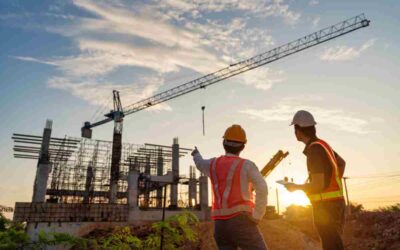
In the ever-evolving landscape of construction, technology and innovation play pivotal roles in transforming the industry. As we navigate through 2024, several key trends and advancements are shaping the future of construction, making processes more efficient, sustainable, and responsive to modern demands.
Digitalization: A New Era of Construction Management
Digitalization is revolutionizing construction management by integrating advanced software solutions and digital tools into every phase of a project. Building Information Modeling (BIM) stands at the forefront, allowing for the creation of detailed 3D models that enhance collaboration and reduce errors. By enabling real-time data sharing among stakeholders, BIM ensures projects are completed on time and within budget. Furthermore, the use of drones for site surveys and inspections provides precise data, improving accuracy and safety.
Lean Construction: Maximizing Efficiency
Lean construction principles focus on minimizing waste and maximizing value through continuous improvement. This approach encourages better resource management, streamlined workflows, and enhanced communication among teams. Techniques such as Just-In-Time (JIT) delivery reduce material waste and on-site clutter, while collaborative planning sessions ensure that everyone is aligned with project goals. By adopting lean construction practices, companies can significantly improve their productivity and profitability.
Materials Technology: Advancing Sustainability
The development of new materials is crucial for building a sustainable future. Innovations in materials technology are driving the creation of stronger, lighter, and more eco-friendly construction materials. For example, the use of carbon fiber-reinforced concrete and self-healing concrete extends the lifespan of structures while reducing maintenance costs. Additionally, the incorporation of recycled materials and green alternatives, such as bamboo and hempcrete, supports environmental sustainability and reduces the carbon footprint of construction projects.
Industrialization: Streamlining Construction Processes
Industrialized construction methods, including prefabrication and modular construction, are gaining traction for their ability to streamline processes and reduce construction times. Prefabrication involves assembling building components off-site in a controlled environment, which ensures higher quality and faster installation. Modular construction takes this a step further by producing entire building modules that can be quickly assembled on-site. These methods not only speed up project timelines but also enhance safety and reduce on-site disruptions.
Sustainability: Building for the Future
Sustainability remains a core focus in modern construction. Green building practices, such as energy-efficient designs, renewable energy integration, and sustainable sourcing of materials, are becoming standard. The use of smart building technologies, including energy management systems and automated controls, further optimizes energy consumption and enhances occupant comfort. By prioritizing sustainability, the construction industry can contribute to environmental preservation and create healthier living spaces.
Business Improvement: Adapting to Change
To thrive in a competitive market, construction businesses must continually adapt and innovate. Implementing advanced project management software, adopting agile methodologies, and investing in employee training are essential for staying ahead. Moreover, fostering a culture of innovation encourages teams to explore new ideas and approaches, driving continuous improvement. By embracing these strategies, construction companies can enhance their operational efficiency and deliver superior results.
Conclusion
The integration of technology and innovation in construction is not just a trend but a necessity for future success. As digitalization, lean construction, advanced materials, industrialization, sustainability, and business improvement continue to shape the industry, companies that adopt these advancements will be better positioned to meet the challenges and opportunities ahead. Embracing these changes today will pave the way for a more efficient, sustainable, and innovative construction landscape tomorrow.

